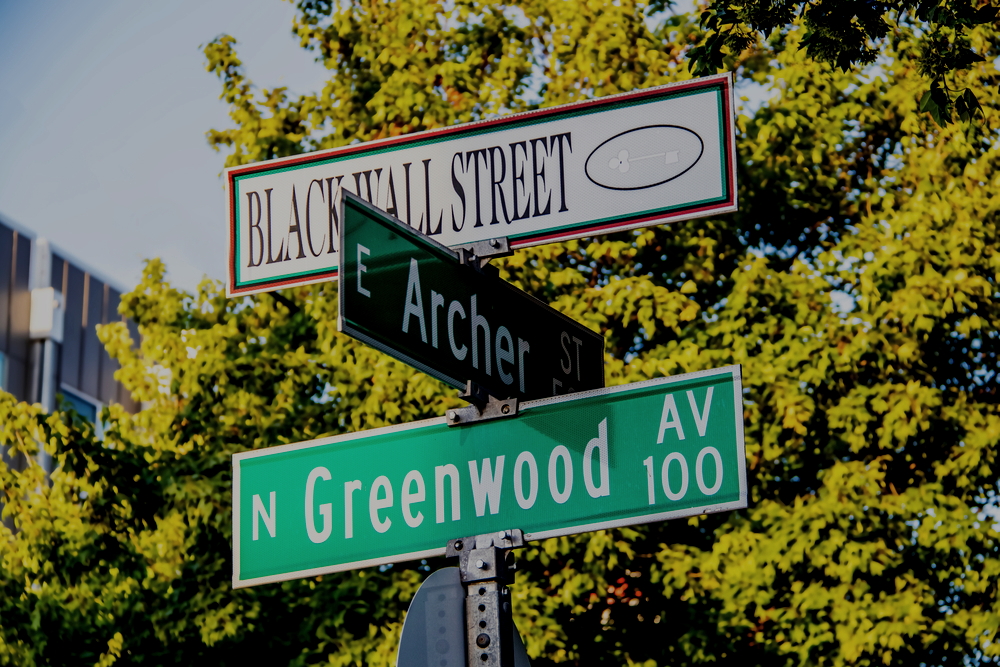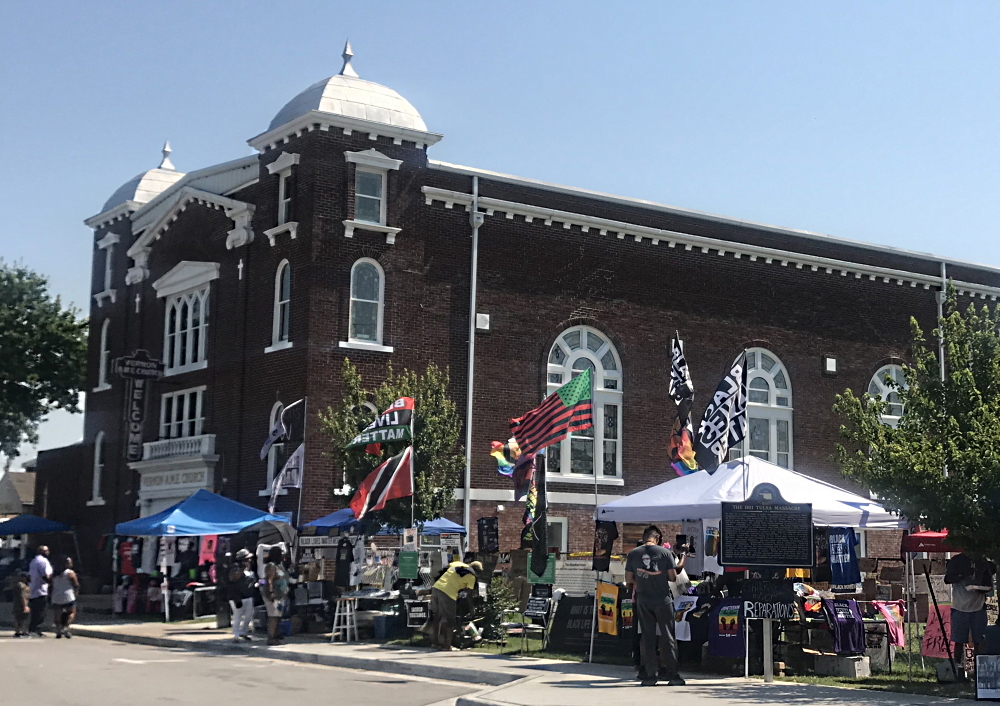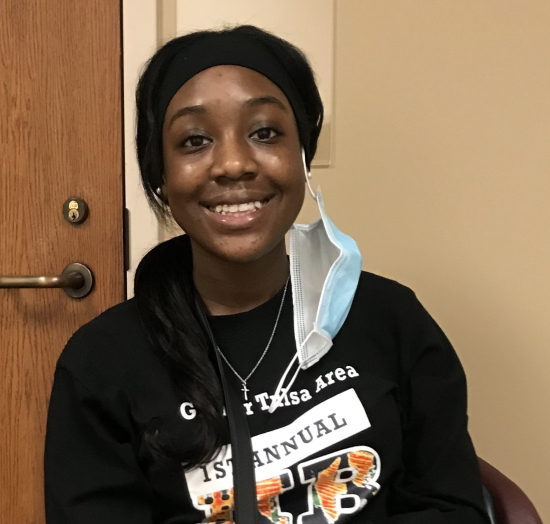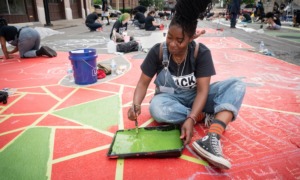
VINEYARD PERSPECTIVE/SHUTTERSTOCK
Historic Greenwood in Tulsa was a thriving commercial center of the Black community when it was attacked by a white mob a century ago.
TULSA, Oklahoma — Juneteenth celebrations in Tulsa’s historic Greenwood neighborhood were in full swing Saturday as 17-year-old Amya Jamison, flanked by black and gold balloons, sold handmade art she helped produce as part of a weeklong entrepreneurship camp for middle and high school students.
“Black Wall Street: The Next Generation Youth Entrepreneurship 101” is in its second year at Oklahoma State University-Tulsa, but it took on special significance this year, the centennial of the Greenwood massacre when a white mob killed as many as 300 Black Tulsans and destroyed the wealth and livelihoods of countless others.
The camp also coincided with the signing of a law making Juneteenth, which commemorates the end of slavery, a national holiday.
“Black Wall Street was incredible,” said Jamison, who became interested in entrepreneurship after she started making personalized gift baskets for friends and family. She said she learned about the massacre at a young age, and is glad that more people across the country are becoming aware of the tragic history.
“They really had everything in their district and, of course, with the Tulsa Race Massacre it got destroyed,” she said. “But we’re rebuilding again.”

Photos by Kristi Eaton
Juneteenth celebrations in the historic Greenwood neighborhood of Tulsa.
The Greenwood district, also known as Black Wall Street, was a bustling commercial center that generated significant wealth for the local Black community in the early 20th century. The 35-block area had all the amenities: clothing stores, doctors’ and lawyers’ offices, movie theaters and more, all Black-owned.
A report from the Brookings Institution noted that according to Tulsa’s Greenwood Cultural Center, the average dollar would stay within the community’s network of households and firms for approximately 19 months before being spent elsewhere.
Camp founder Jayme Broome, a Black entrepreneur who also works as an administrator at a local private school, said it was important to do more than commemorate the centennial of the massacre that destroyed Black Wall Street.
“We are also honoring the history, the legacy of what Greenwood meant prior to the massacre,” Broome said. “There was just a massive amount of tenacity and hard work in the community.”
The camp is a reminder of the barriers to building wealth that Black Tulsans still face today.
According to the most recent equality indicators report from the Community Service Council in Tulsa, “The lack of women and people of color, especially African Americans, in executive-level positions in Tulsa is indicative of a persistent imbalance in the distribution of power and wealth in the Tulsa community.”
The report also found that people of color in Tulsa are less likely than their white counterparts to be employed in higher paying occupations.

Seventeen-year-old Amya Jamison studied entrepreneurship at Black Wall Street: The Next Generation Youth Entrepreneurship 101, a weeklong camp for middle and high school students .
Black Wall Street: Next Generation, which cost $100 for the week and was open to any student in 7th to 11th grade, aims to address the wealth gap by teaching leadership and business skills.
Campers were broken out into teams to conceptualize, develop and market a product to sell at the Juneteenth Festival.
Twelve-year-old Marcus Johnson said he wanted to learn about being his own boss, like his dad, a small business owner.
“I feel like it would be cool to own a business,” said Johnson, who was voted chief financial officer and handled the budget for his team, which made handmade art.
“I like working with money, and I feel like I’m good with math,” he added.
The curriculum of the week-long camp drew heavily on the best-selling book, “7 Habits of Highly Effective Teens.” Attendance was capped at 16 due to COVID-19 safety restrictions, and many students wore masks throughout the daily sessions.
Broome, the instructor, said she hopes the camp inspires youth to step up into leadership roles.
“We know that’s the beginning of the development of your adult life, where you have to make the choices that will ultimately determine your course,” Broome said.
Jamison, the CEO of her team, oversaw all aspects in the creation and marketing of the art they sold, which used a technique called hydro drip to create painted canvases and decorative bottles to sell at the Juneteenth Festival.
“It’s a weighty job, but you have a team to help you,” she said. “It’s a big job, but a job that is manageable.”































